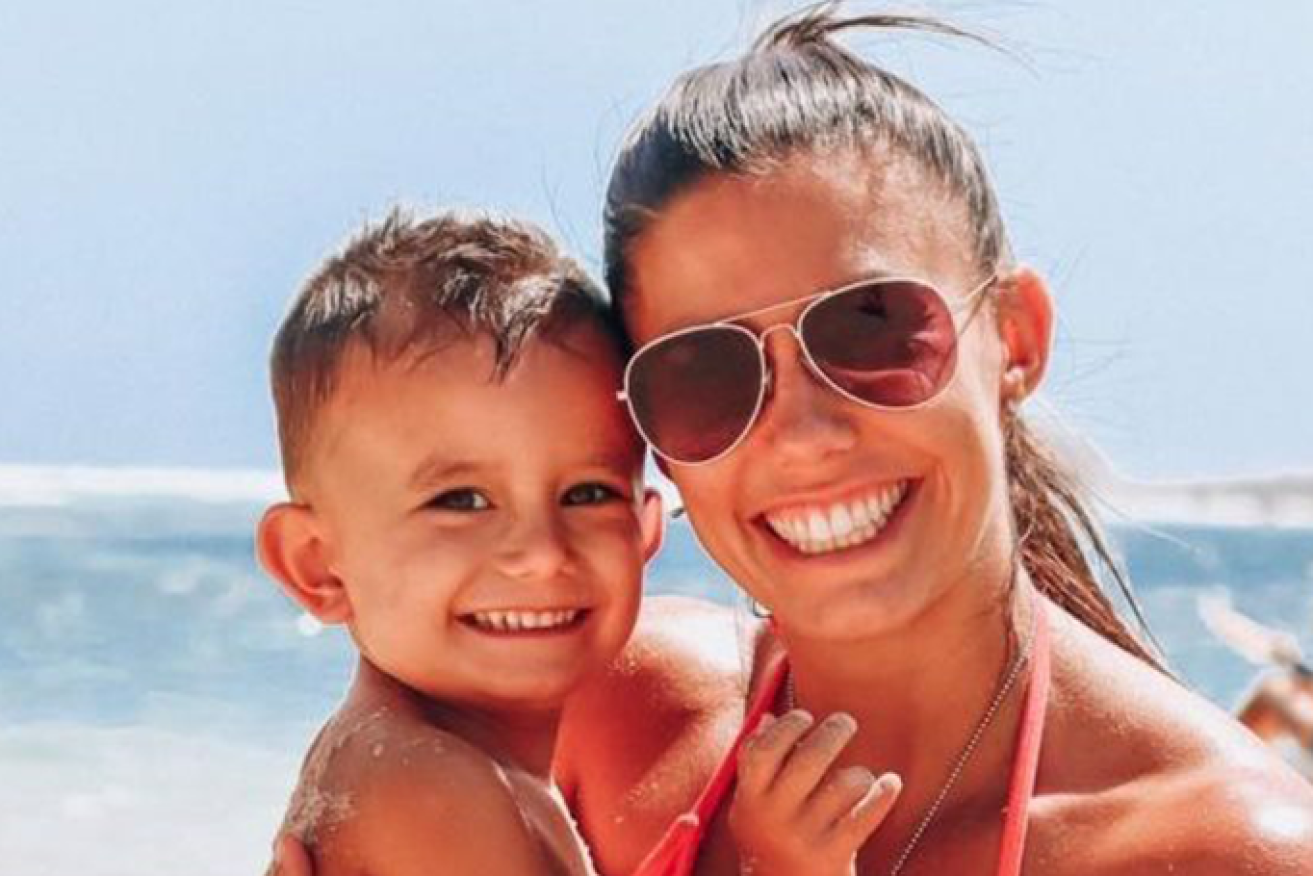Terrorised, choked during sex: How no one but Hannah really believed she was in imminent danger
Domestic violence workers dealing with huge workloads thought Hannah Clarke was not at imminent risk the month before she was killed, an inquest has been told.

Domestic violence murder victim Hannah Clarke with her son, Trey.
Domestic violence workers have told the inquest in the deaths of Ms Clarke and her three children at the hands of her estranged husband Rowan Baxter that they also believed the police response to her situation as appropriate.
A social worker from Brisbane Domestic Violence Services, who cannot be identified, said up to 60 referrals were coming into the service at the time she spoke to Clarke on December 9, 2019.
Another said the service received more than 4000 referrals a year.
This meant a huge back-list of women, combined with phone calls for women needing immediate crisis response.
Asked about the police not being told about Clarke having been choked by Baxter during sex in November, one worker said many women spoke about strangulation.
The response by the social workers may depend on what the women want and whether they are ready to tell police.
“There’s so many reporting strangulation, dousing has gone up by 50 per cent in some cases since Hannah’s death,” she added.
“It’s becoming a much more active way of putting terror over to women.”
The worker said some men “just intimate it” while others start fires.
Most women the workers deal with are high risk, scoring more than 45 on their risk and safety assessment tool.
Clarke’s score was 62, while the average at the time was 70.
Another worker saw Clarke at her parents’ home on January 8 after Baxter abducted one of their children on Boxing Day.
That behaviour was a “huge red flag” but, with the police and the service already involved, the worker did not believe Ms Clarke was at imminent risk.
Another saw Clarke on February 4, when she came across as upbeat and “looking forward to moving on with her life”.
The worker was satisfied Clarke was receiving appropriate support from police.
At the time, Clarke was one of 40 women the worker was dealing with.
The inquest was told about the need for secure housing for women in high-risk situations, especially as 78 per cent of women assessed by the organisation are being stalked.
“It’s a common occurrence,” one worker said.
Already housing is limited with “thousands” on wait lists.
The organisation is contacted almost weekly by women living in cars and not wanting to return to violent partners, the inquest was told.
A worker said they had a “delicate process” of supporting women who are often only just coming to terms with being domestic violence victims.
The service providers also had to weigh up what to write in case notes because they can be subpoenaed and used against the women in processes like family courts.
Clarke was leaving her parents’ home in Brisbane’s Camp Hill to take her children – Aaliyah, six, Laianah, four, and Trey, three – to school when Baxter got into the car, poured fuel inside and set it alight on February 19, 2020.
Baxter, 42, then stabbed himself with a knife, dying nearby.
Clarke died later the same day in hospital.
1800 RESPECT (1800 737 732)
Lifeline 13 11 14












